Economic Development
The Pulaski County Department of Economic Development (PCED) is the County's sales and marketing arm, the lead agency for attracting new business investment, encouraging the expansion of existing industry and small businesses, aligning workforce education and training with in-demand jobs, locating new markets for local products, attracting tourists to Pulaski and promoting the county as a destination for arts and location for film, music and digital entertainment projects as well as planning and mobilizing local and state resources for economic development.
Small Business Solutions Department
Pulaski County Small Business Solutions is here to provide assistance, support, and guidance to new and existing entrepreneurs and small business owners (under appx. 50 employees). This office offers a place to conceptualize and actualize your business ideas, explore new possibilities, and solve any business challenges that arise along the way. We offer one-on-one assistance with strategic business planning, marketing and promotion, site selection, legal registration, and more at absolutely no cost to you. You may contact Lydia Gilmer or visit smallbusinesspcva.com to learn more.
The Small Business Solutions Department is located within the Pulaski County Innovation Center in Fairlawn. This business incubator facility is over 50,000 square feet and is home to 40 small businesses. If you would like more information about available space for rent, conference room reservations, and other offerings, please visit innovatepcva.com.
Workforce Development Initiative
- Workforce Development Plan
- Workforce Participation Rate Analysis
- Workforce Tools for Employers in Pulaski County
- Workforce Development Plan Update | June 2019
Scan our Available Sites
The Virginia Economic Development Partnership (VEDP) maintains a statewide clearinghouse of available commercial properties that are currently being marketed by localities, partners, and VEDP itself. Below is a map of such sites available throughout Pulaski County.
Southwest Virginia’s Center for International Business!
Pulaski County is home to nine (9) international companies that have direct employment of over 4,000 and growing. The advanced manufacturing cluster of foreign investment makes Pulaski County, Southwest Virginia’s Center for International Business. The County hosts an International Port of Entry and a Foreign Trade Zone located at the New River Valley Regional Airport (VA’s 7th longest runway). We also understand the acute challenges and boundless opportunities that come along with doing business overseas, and have created a unique support structure that helps international companies address such issues as: Tax policies, immigration, incentivize programs and import/export polices. In addition, we have access to a diverse community of expats that come from all over the world and can help new foreign nationals come to belong here in Pulaski County, Virginia.
International Port of Entry (Port of Entry #1412):
A Port of Entry processes goods entering and exiting the United States and enforces customs laws. Foreign goods may be entered for consumption, for warehousing or for transportation to another port of entry. Goods arriving to the Virginia TradePort in-bound from a different port can be immediately handled, saving an importer considerable time and money (rather than waiting for shipments to clear in more congested ports). The Virginia TradePort has a Customs and Border Protection (CBP) officer on site to provide personal and timely inspections and clearance of imported and exported goods. The CBP officer is authorized to travel to Pulaski County to inspect goods entering or exiting the United States.
Foreign Trade Zone (Foreign Trade Zone #238)
A foreign trade zone is a secure and enclosed area under the supervision of U.S. Customs and Border Protection. It is considered to be outside U.S. customs territory. This allows foreign goods to be brought into the zone without being subject to U.S. customs duties. Goods will remain duty free until the goods enter the U.S. commerce. While goods are in the foreign trade zone they can be stored, inspected, manipulated, processed, relabeled, and repackaged (all while being in a duty free environment). Customs duties are due at the time the goods move outside the foreign trade zone and enter U.S. commerce. If the items are re-exported or destroyed, no duties will be due. If the items are manufactured into a lower duty rate product, then duty can be paid at the lower rate (with approval from the Foreign Trade Zone Board).

